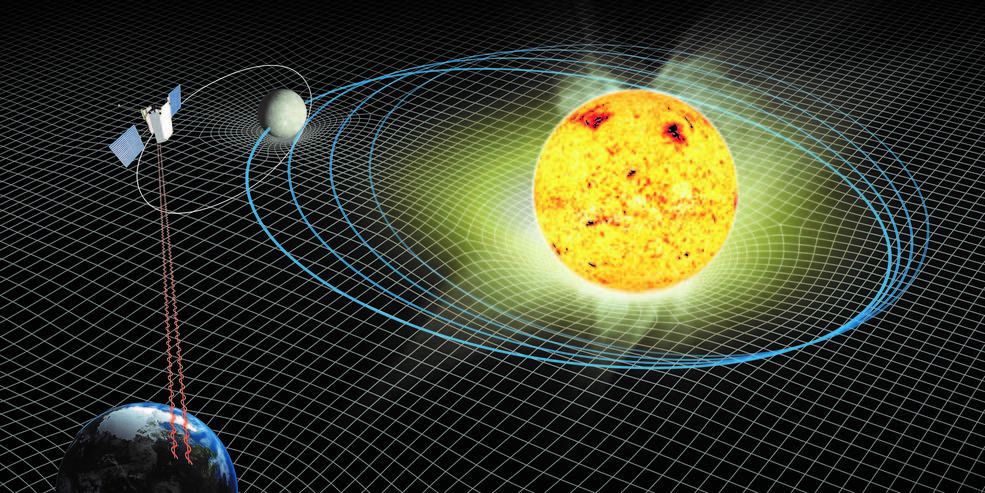
As our sun gets older, it's losing mass, and so its gravitational pull becomes weaker. As a result, the orbits of all the planets in our solar system are expanding, not unlike "the waistband of a couch potato in midlife," according to a new NASA press statement.
A team of researchers from the Massachusetts Institute of Technology, the University of Maryland and the NASA Goddard Space Flight Center has shown that the aging sun is behaving according to Albert Einstein's theory of general relativity. The key to testing his theory? The planet Mercury.
In 2015, NASA's MESSENGER probe crashed into Mercury (intentionally; this is just how NASA wraps things up a lot of the time) ending its planetary exploration mission. But the seven years' worth of data it gathered while still active provided the researchers with everything they needed to estimate the relevant parameters for both general relativity and the sun's own life cycle. A paper describing the research was published in the scientific journal Nature.
"Mercury is the perfect test object for these experiments because it is so sensitive to the gravitational effect and activity of the sun," lead author Antonio Genova, an MIT researcher working at NASA's Goddard Space Flight Center, said in the press statement.
Einstein's famous theory accounts for the fact that the gravitational fields of huge objects—like the sun—warp the space-time continuum around them, according to Gizmodo. Because Mercury is the planet in our solar system closest to the sun, its orbit is the tightest.
"We're addressing long-standing and very important questions both in fundamental physics and solar science by using a planetary-science approach," Goddard geophysicist Erwan Mazarico said in the NASA statement. "By coming at these problems from a different perspective, we can gain more confidence in the numbers, and we can learn more about the interplay between the sun and the planets."
Like humans, our Sun loses mass as it ages, weakening its gravitational pull. To study the dynamics of our aging star, @NASASun researchers have enlisted Mercury, the smallest, innermost planet in the solar system. See how: https://t.co/IaUqVgW9Zx pic.twitter.com/a8U55nPdsJ
— NASA (@NASA) January 19, 2018
That warping effect Einstein predicted slowly but steadily affects Mercury's orbit. In a few billion years, it might crash into the Earth, according to Space.com. The accuracy with which the researchers found general relativity has predicted Mercury's path has reaffirmed that Einstein was right. This may seem like a foregone conclusion to the average non-physicist who isn't really in a position to question Einstein, but it's important to remember that almost anything in science is open to questioning.
"The study demonstrates how making measurements of planetary orbit changes throughout the solar system opens the possibility of future discoveries about the nature of the sun and planets, and indeed, about the basic workings of the universe," co-author Maria Zuber, vice president for research at MIT, said in the NASA statement.
Uncommon Knowledge
Newsweek is committed to challenging conventional wisdom and finding connections in the search for common ground.
Newsweek is committed to challenging conventional wisdom and finding connections in the search for common ground.
About the writer
Kastalia Medrano is a Manhattan-based journalist whose writing has appeared at outlets like Pacific Standard, VICE, National Geographic, the Paris Review Daily, ... Read more
To read how Newsweek uses AI as a newsroom tool, Click here.








